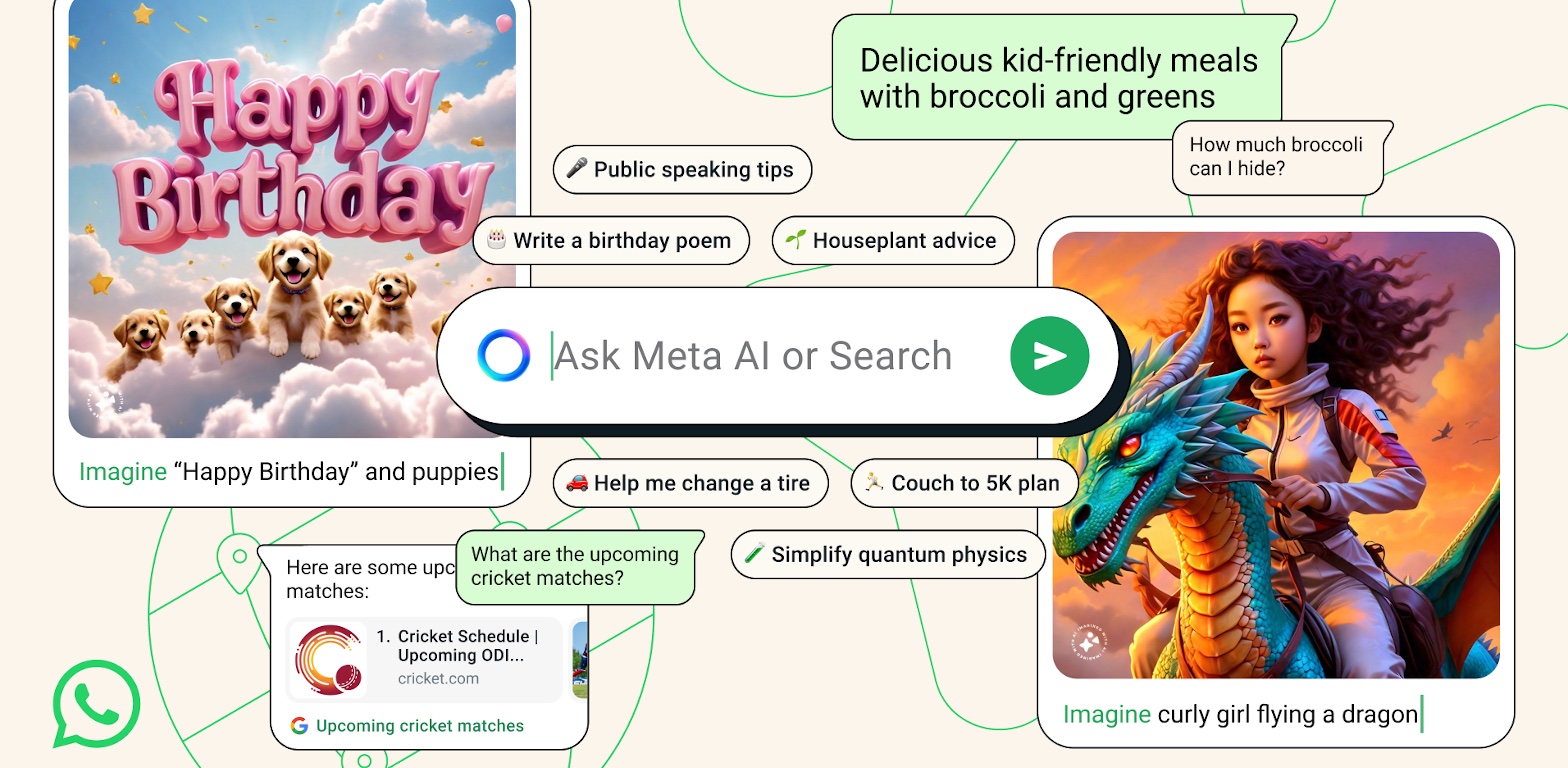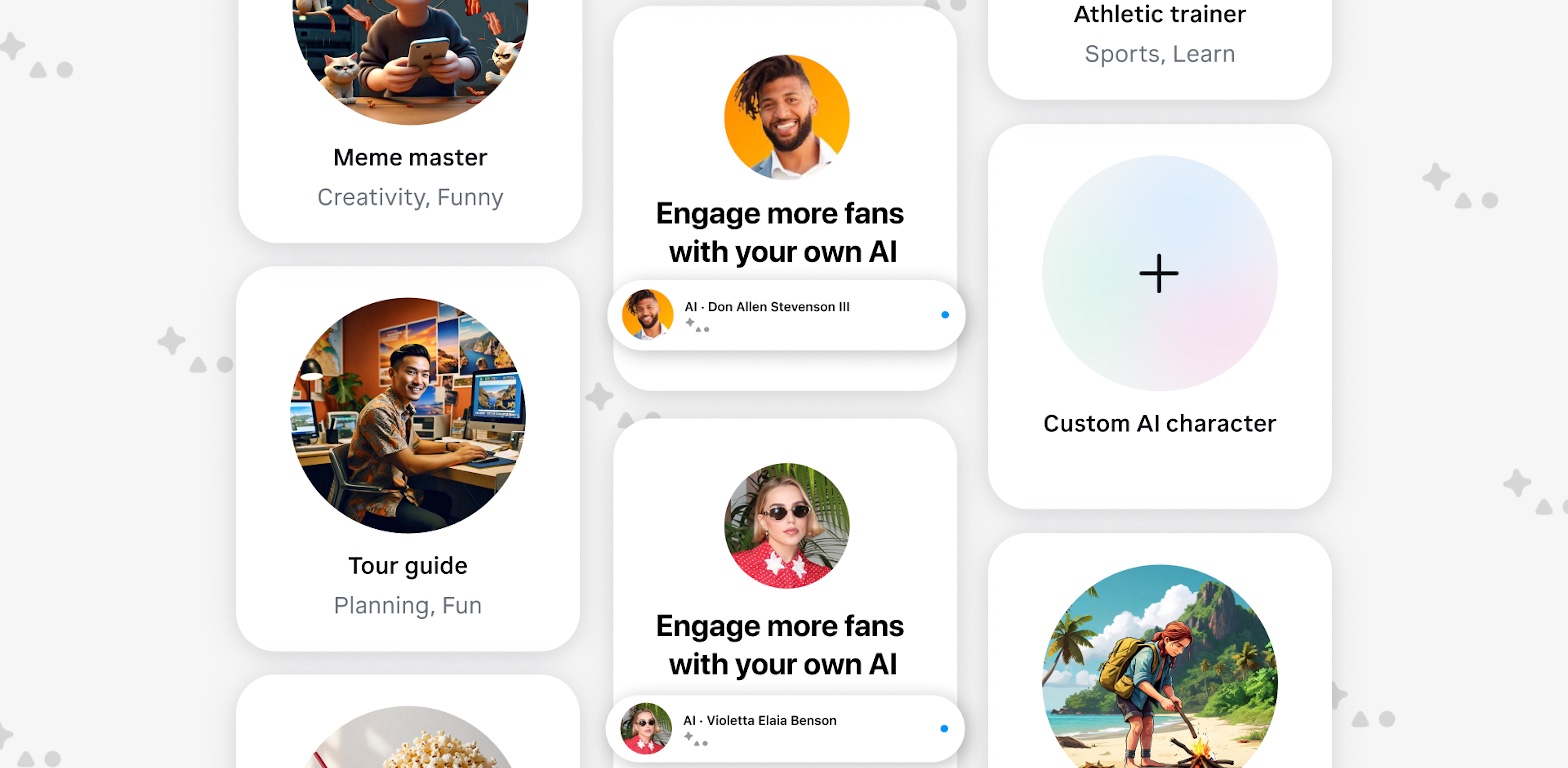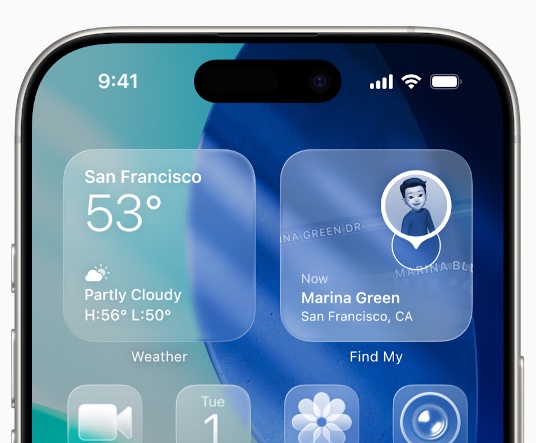So Many Chatbots, So Little Point

“How can I help you today?”
One thing that I feel is starting to become an issue is having AI (especially in chatbot form) crammed into almost every app and website out there, even in places that absolutely don’t need them. Often they don’t add any real value, and can even make the user experience worse.
Not to be too negative: there’s no doubt that things will improve with time and that many companies are still experimenting with AI. I know that the user experience can’t exactly be optimal right off the bat when a new technology starts getting broadly implemented. For now, it’s a brand new toy and everyone wants to get in on the fun, but it’ll all balance out at some point. Everything should run much better and smoother down the road.
All that said, one example that’s been bugging me pretty much daily for quite some time now is Meta’s AI assistant with its silly blue circle (that you can’t get rid of) in WhatsApp.
Did WhatsApp actually need an AI assistant? Who wants to use AI for WhatsApp, anyway? It frankly seems like a desperate attempt from Meta. I mean, maybe I’m wrong, but having AI sum up messages from your relatives for you feels like a rather sad addition to an app whose main point is communication between people. Also, getting your personal number thrown around by the AI “helper” by mistake isn’t a good look, either.
“Unfortunately, I’m not able to connect you to a human representative.”
But, anyway. WhatsApp isn’t the only platform guilty of this. As I said, AI chatbots are being implemented everywhere, and they often fire a distracting pop-up, or have unnecessary animations that scream for attention—and they just make browsing worse. And most of the time they’re utterly useless. I’ve lost count of how many websites I’ve visited lately where the intrusive chatbot pops up asking if I need help when I’m just trying to read a quick article or find some basic info.
The assumption seems to be that AI automatically makes a platform smarter and more user-friendly, but the result ends up pretty much the opposite. Instead of making the user experience better, what it often does is create digital clutter instead, since these chatbots distract from the content that users are actually interested in. They also add unnecessary difficulty if you really do need customer support (as in, an actual human). Or, you know, just a real answer to your question instead of a hallucinated one. I can’t help but think many companies introduce AI assistants just to appear innovative, rather than out of genuine necessity or any kind of thoughtful design… and the digital landscape is already crowded enough without adding in pointless chatbots.

And speaking of pointless chatbots: WhatsApp is allegedly also integrating Meta’s “AI Studio” in which the user can make a custom AI chat personality. And then, you can… chat with it like you chat with your friends and family? I don’t know about you, but I look at these kinds of AI as gimmicky toys at best. They’re mostly meant for keeping you interacting with the app, and don’t actually add much value otherwise. But, then…
“I’m sorry to hear you’re sad. Do you want to talk about it?”
These chatbots may seem like useless clutter to most, but I’m aware there’s another side to it. Beyond just clutter and inconvenience, there’s a deeper issue with them that’s a bit concerning: the impact of relying on AI for conversation. Some people are starting to rely on these bots as stand-ins for actual human interaction, which doesn’t seem exactly healthy to me (and there are some pretty wild cases of it triggering delusions, psychoses and other mental health crises.)
It makes sense when you think about it: these AI assistants are designed to keep users engaged by being overly agreeable and supportive—never mind if they’re reinforcing unhealthy or irrational thoughts by this. Isolated, lonely or vulnerable people craving real interaction might find a certain kind of comfort in these chatbots at first, but that comfort seems to easily turn to dependency or even obsession in some.
Then again, there’s a semi-positive side to this issue. Some people truly have no one to talk to, and for them, AI might genuinely help them with depression. I know this is a really gray area, but chatting with AI can be positive in a therapeutic sense exactly because it tends to find something positive in everything, and some people really need that. Not to mention, there are quite a few not-so-competent therapists out there; they’re human, after all. And, in many ways, an AI actually has advantages over such human therapists—it’s infinitely more patient, for one.
Still, companies pushing these chatbots simply aren’t considering any of these scenarios. They’re just focused on user engagement and appearing tech-forward.
Maybe companies should spend less time blindly copying flashy trends and more time thinking about whether these features genuinely improve user experiences or just clutter them up. Obviously, not every app needs an AI chatbot. Sometimes simplicity is best, and companies would do well to remember that. Users should be getting technology designed with their actual needs in mind, not just gimmicks to inflate corporate innovation points.



